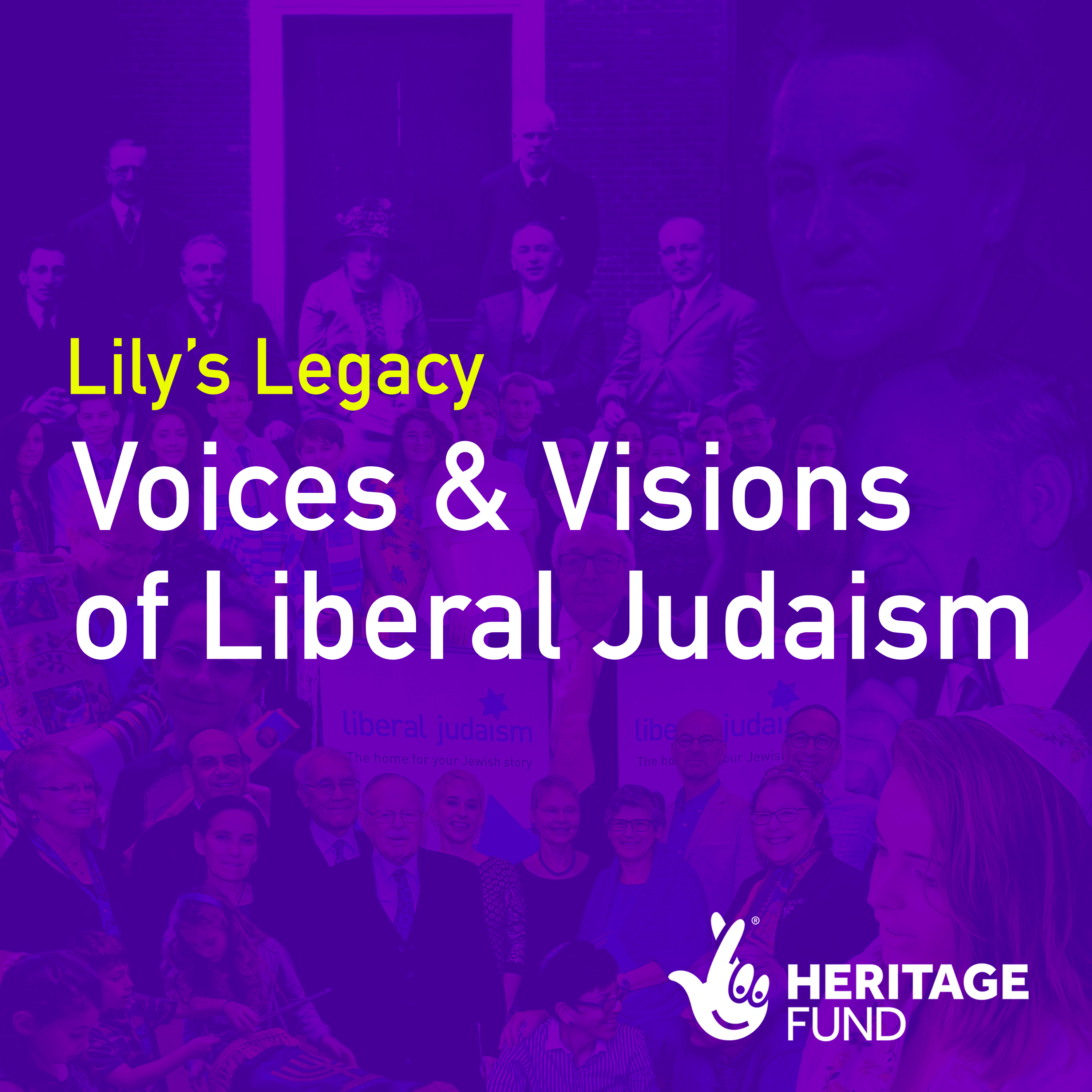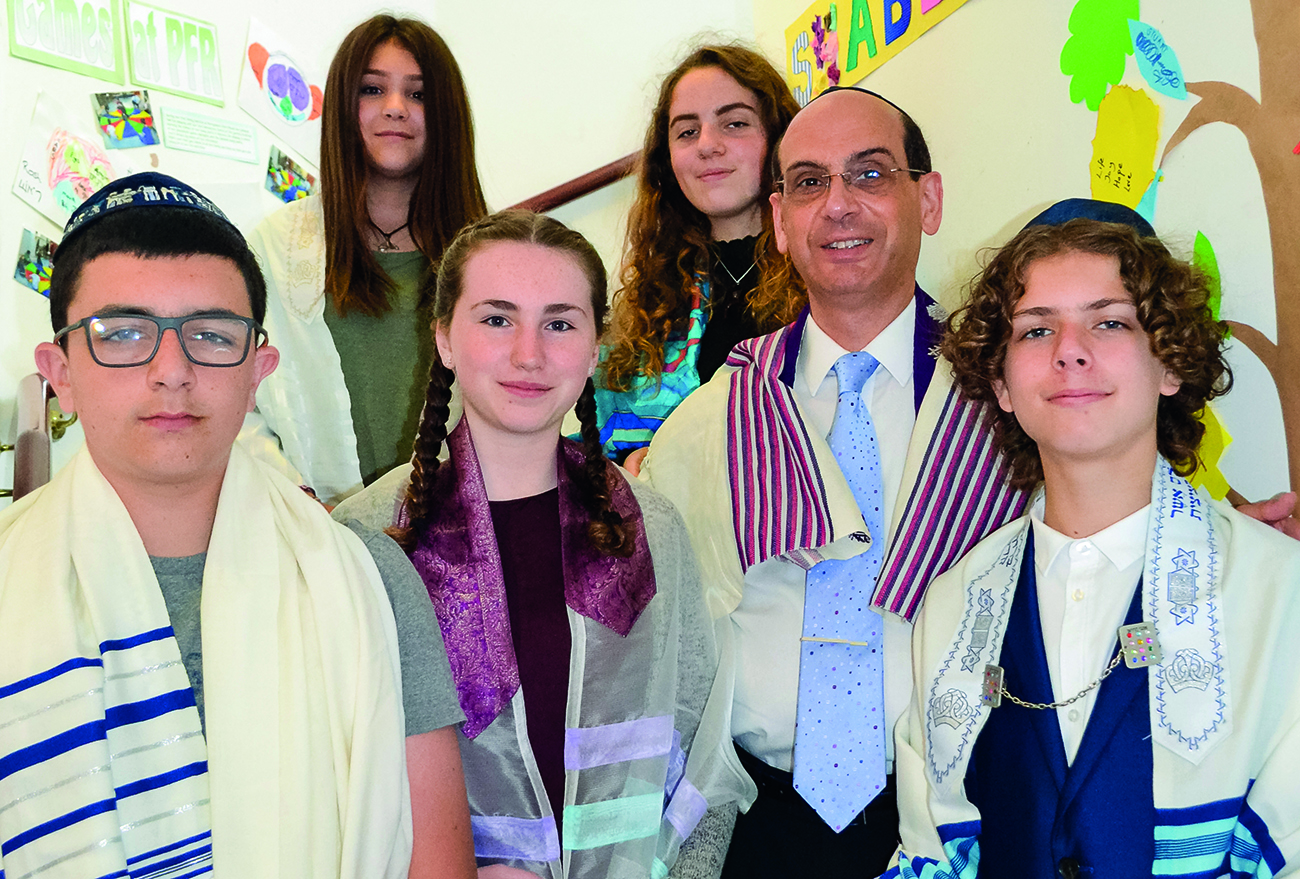Through The Generations
Introduction/ Narrated by Harry Hurst
A podcast series compiled from oral histories and produced as part of a digital exhibition exploring how Liberal Judaism has evolved since it was co-founded by British visionary Lily Montagu in 1902.
This episode explores the theme of youth and intergenerational Judaism
One of Lily Montagu’s major achievements was the foundation of the West Central Jewish Girls Club in 1893. Since that time Liberal Judaism has been committed to the needs and future of its young people.
As well as clubs run by the movement, a number of synagogues founded their own youth clubs. In this episode Liberal Jews reminisce about the clubs they formed and attended. Listen to memories that date back to Lily’s lifetime as well as perceptions from our current young members.
“I grew up going to the LJS. I went to cheder there, to the religion school and felt very much part of that community. I also went to the youth club there which was called Square One. I wasn’t Bat Mitzvahed, I was confirmed and that was what was considered the route into sort of mature Judaism in those days. It was like Kabbalat Torah now at 15. I was with a group of other young people who’d been through the whole religion school together. So we were very close group, we were good friends.
They’re both in their 20s now my daughters. But my youngest daughter, Helen, she was an LJY Netzer staff member here at the Montagu Centre. And she feels very strongly about a sense of identity as a Jew, probably much more than I do, actually. But I think through her, I will have more of a connection with Judaism as well, as she gets older, and if she has children.
I think the whole idea of diversity and and celebrating diversity in in many, many ways is really carried out within Liberal Judaism and within LJY Netzer, who are the children who are the next generation. And I’ve seen that through my daughter, Rabbi Elii’s wife taught her Kabbalat Torah and I think has been enormously and very positively an influence on Helen and Claire and I think welcoming in and valuing people who who think in a different way, valuing people of different races and different religions, I think is tremendously positive.“
Rachel Goldhill
Jackie Richards
We had what was known as FLIPJYG the Federation of Liberal Progressive Jewish Youth Groups. And because of our connection with North London, we were on the committee, we were running North London, Sheila and I became involved in FLIPJYG. And through FLIPJYG we became involved in the youth section of the World Union.
We kept the youth section together for a long time. And to do that, we needed Lily Montagu!
So she was there. We didn’t have a great deal to do with her. She would…she was there. And we’d say good morning, Miss Lily. And She’d say ‘hello’. We’d get on with our work then she be in and out.
So we were, on the one hand, involved with her through World Union and the youth sections and so on, but I was also working at the Oxford and St George’s Boys Club. I was a club manager at O St G’s. Sheila helped out there I taught in the religion school at Oxford and St Georges. And also involved as a member of North London Progressive Synagogue, the youth club, World Union youth section, Federation youth section.
And so I’ve got five children, and all those five – they’ve all come through the synagogue, they’ve gone through religion school. They all went off to Kadima. enjoyed it, loved every second of it and benefited from it. They all to this day have friends that they’ve made in the liberal movement. Very close friends. And wherever they are spread around the world. They’re all part of the liberal scene.”
Lionel Lassman
Laura, our oldest daughter, she is, was chair of the synagogue for four years and did a great deal of work to improve the synagogue. She’s our oldest . She’s married to Danny Rich and between them they have eight children.
Sheila Lassman
My father was one of eight
Lionel Lassman
Yes your father was also the treasurer of the synagogue so it’s gone down in generations his father, he was chair, I was chair, laura was chair. Our second child Michael is incredibly involved in the synagogue. He never misses a service, Friday night, Shabbat, And it matters hugely to him, that community. And he has two children. one of whom was deeply, deeply involved and has now moved her allegiance to climate change. She’s an activist in a big way. And then we have a third child, Rebecca, who is a member, but lives in South London in Dulwich , doesn’t want to join South London, because Finchley has always been where they’re comfortable.
Sheila Lassman
Rebecca Shtasel
Fran Kurlansky
Rosita Rosenberg
Ann Carr
We met, sang, dance, played netball, did the kind of things you do, did some needle work. It was mostly in the evening after school. Lily Montagu and her sister were there they …they ran the place more or less. It wasn’t specifically Jewish, it was just a club for girls. She formed that for girls who worked in the shops in the east West End of London and because the shops were open on Saturday, they couldn’t go to synagogue. So she had it on Saturday afternoon, these clubs and then during the week when they can get away. Basically it was for girls in that part of London.
”Myrtle Weiner
“I would think it was in about 1951, we became members of the West Central youth club, which was Lily Montagu’s club. It was held at that time, at Hand Court, just off Holborn. There were many activities there. And of course, you have to remember it was largely through attendances to the youth club that Lily founded the synagogue, certainly West Central, came into being. Originally it was a girls’ club. And, so, during and after the war, it became a mixed club. They had been a bit of West Central boys’ club, in Fitzroy Square. There was a wide range of activities: there was a choir, there was an opera group, there were music groups, there were poetry groups. there was a very, very wide range of activities. And of course, when the girls club and the boys club joined forces, that obviously grew.
In Hampstead, West Hampstead, there was an old Jewish club, a famous Jewish club, called Maccabee, which was very much an Israel orientated thing, which we used to go to now and again. And there were very good music appreciation classes there, but it was the West Central ones that were very, very influential. And it’s such a shame that now, at the beginning of the 21st century, you know, this kind of clubs have disappeared. And, you know, all that’s left for the youngsters is to wander the streets, and we all know what that starts. A shame really.“
Stanley Freed
And of course he’s responsible for Margaret and the others who are now ministers of the movement.
”Lionel Lassman
Rabbi Margaret Jacobi
Tasha
Conclusion
This podcast series of oral histories is part of the exhibition: Lily’s Legacy – Voices and Visions of Liberal Judaism, a project supported by The National Lottery Heritage Fund.
It was produced by Miri Lawrence and Lucia Scazzocchio, Sound editing and design by Lucia Scazzocchio, and special thanks to all the contributors who agreed to share their stories. For more information about what you’ve just heard, do visit the exhibition website, www.lilyslegacyproject.com

To download or share all the podcasts in this series go to lilyslegacy.transistor.fm/subscribe
Through The Generations
Lily Montagu was dedicated to the needs of young people, especially young girls who lived in poverty in the East End of London. She founded The West Central Jewish Girls’ Club in 1893, together with her sister, Marian (1868 – 1965), and their cousin, Beatrice Franklin (1871 – 1959). Lily Montagu helped create a club that gave working class Jewish girls the opportunity to develop themselves socially, intellectually and spiritually, through classes, Sabbath services, concerts, and outings. Since that time Liberal Judaism has remained committed to the needs and future of its young people.
Exhibition
Exhibition
Home
Follow




